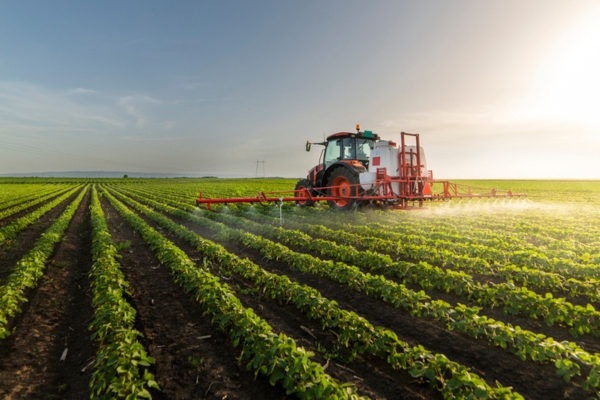Contents
- 1 The Urgent Issues with Carbon Emissions
- 2 Strategies for Effective Carbon Management
- 3 Effects of Carbon Emissions
- 4 How Bioheat® Heating Oil Reduces Carbon Emissions
- 5 Eco-Friendly and Budget-Friendly Home Heating with Bioheat® Fuel Oil
- 6 Wilcox Energy’s Commitment to Sustainability
- 7 How Homeowners Support Sustainability with Bioheat® Heating Oil
- 8 Affordable Green Energy with Wilcox Energy
- 9 Bioheat® Fuel FAQs
- 9.1 What Sets Bioheat® Heating Oil Apart from Regular Heating Oil?
- 9.2 Can Bioheat® Home Heating Oil Be Used in All Heating Systems?
- 9.3 Does Bioheat® Fuel Oil Perform Differently from Traditional Heating Oil?
- 9.4 How Does Bioheat® Heating Oil Affect Heating System Maintenance?
- 9.5 How Frequently Should I Refill My Oil Tank?
- 9.6 Is It Possible to Switch Back to Regular Heating Oil After Using Bioheat® Oil?
- 10 Conclusion
- 11 For Reliable Heating Oil Deliveries, Contact Wilcox Energy
Carbon emissions are the release of carbon dioxide (CO2), a significant greenhouse gas, into our atmosphere from activities like burning fossil fuels, industrial production, and biological processes such as respiration. While CO2 plays a crucial role in maintaining the Earth’s temperature by trapping heat, the excessive levels produced by human activities intensify the natural greenhouse effect. This escalation leads to global warming, disrupting delicate ecological systems and climate patterns.
While carbon dioxide naturally helps regulate Earth’s temperature, an overabundance of it leads to excessive atmospheric heat retention, commonly referred to as global warming. This increase in global temperatures can have profound effects, disrupting ecosystems, changing climate patterns, and threatening biodiversity and human communities.
This article from Wilcox Energy explores various important aspects concerning carbon emissions. We’ll begin by discussing why excessive carbon emissions are a major concern. Next, we’ll examine their wide-ranging impacts on the environment. We will also delve into the role of Bioheat® heating oil in reducing emissions. Finally, we will provide additional insights and discussions related to effective carbon management.
The Urgent Issues with Carbon Emissions
Although carbon emissions are a natural element of Earth’s atmospheric functions, entities such as the US Environmental Protection Agency (EPA) rigorously define and oversee annual carbon budgets. This oversight is vital because emissions surpassing these thresholds exacerbate global warming, resulting in substantial shifts in the global climate. These alterations threaten ecosystems, human health, and environmental stability.
Strategies for Effective Carbon Management

To effectively control carbon emissions, the federal government emphasizes education on the repercussions of excessive emissions and champions sustainable practices. These include:
- Afforestation: Planting trees to absorb CO2 from the atmosphere naturally.
- Eco-Friendly Transportation: Promoting biking and walking to lessen fossil fuel use.
- Renewable Energy Adoption: Switching to solar and wind energy to cut down on carbon-heavy power generation.
- Home Energy Efficiency: Upgrading homes to consume less energy and produce fewer emissions.
- Recycling Initiatives: Encouraging recycling to decrease waste and the carbon footprint of manufacturing new materials.
In 2020, the US Carbon Cycle Science Program stated that carbon emissions in the United States saw a notable decline of about 7%. This reduction largely stemmed from reduced travel due to COVID-19-related restrictions. With economic activities and travel expected to rebound to pre-pandemic levels, it is reasonable to expect an uptick in US emissions in the near future.
Effects of Carbon Emissions
The discharge of carbon dioxide into the atmosphere is more harmful than beneficial, highlighting the need for reducing emissions through eco-friendly practices. Excessive carbon emissions contribute to a range of negative effects, which underscores the importance of adopting sustainable measures.
Extreme Weather Linked to Carbon Emissions

Fueled by excessive carbon dioxide emissions, global warming leads to significant changes in weather patterns. For instance, higher surface temperatures increase evaporation rates, causing more intense rainfall in regions already prone to wet conditions. In contrast, arid areas may experience worsened droughts as moisture rapidly evaporates. The Natural Resources Defense Council (NRDC) narrated that phenomena like floods, droughts, and storms are becoming more severe due to global warming.
Carbon dioxide emissions indirectly worsen respiratory health issues by impacting air quality. Although CO2 is not a direct irritant, its contribution to climate change results in higher temperatures that enhance ground-level ozone production. This type of ozone, which forms through sunlight-driven reactions with industrial pollutants, aggravates respiratory conditions such as asthma. Increased ozone levels can inflame the airways, complicating breathing and exacerbating conditions like asthma and bronchitis.
Health Risks from Elevated Carbon Dioxide Levels
Rising carbon emissions can lead to higher atmospheric CO2 levels, which may diminish the relative concentration of oxygen. This reduction in oxygen availability can cause symptoms like headaches and fatigue.
The Asthma and Allergy Foundation of America (AAFA) narrates that individuals with respiratory conditions are especially susceptible to deteriorating air quality. Moreover, elevated CO2 levels can impair indoor air circulation, heightening health risks and underscoring the importance of effective ventilation and air quality management in populated spaces.
Effects of Carbon Emissions on Agriculture and Food Security

Global warming, propelled by rising carbon emissions, poses severe threats to agriculture, a vital component of global food security. The United Nations Framework Convention on Climate Change identifies climate change as a major contributor to global hunger.
Elevated temperatures can sharply decrease the productivity of both crops and livestock, causing notable disruptions in food availability and agricultural outputs. These climatic shifts impact the quantity and quality of food, as they can alter the nutritional content of various crops.
Nutritional Challenges Linked to Climate Change
Elevated carbon dioxide levels resulting from global warming directly influence plant physiology, often diminishing the nutritional quality of crops. This decline in food value has significant health repercussions, increasing susceptibility to diseases and exacerbating malnutrition, especially in vulnerable populations.
When reduced food quality combines with declining food security, the risks to public health and global stability become even more pronounced. These challenges highlight the pressing need for strategies to curb carbon emissions and adapt agricultural practices to shifting climate conditions.
Increasing Wildfire Incidents

The National Interagency Fire Center (NIFC) reports a concerning increase in wildfire occurrences across the United States, signaling a growing environmental crisis. In just the first two months of 2021, over 2,900 wildfires were recorded.
While human activities, including arson and accidents, are common ignition sources, the role of climate change in intensifying environmental conditions cannot be overlooked. Rising temperatures, prolonged droughts, and reduced humidity create the perfect conditions for wildfires to spread more rapidly and cause greater devastation.
Climate Change Role in Intensifying Wildfires
Rising temperatures and extended periods of dryness, driven by the greenhouse effect, are major contributors to the increased intensity and rapid spread of wildfires. These arid conditions, exacerbated by elevated carbon emissions, create an environment where wildfires ignite more readily and are harder to control.
Firefighters face greater challenges as traditional methods become less effective under these altered climatic circumstances. The combination of human-induced and natural factors underscores the need for innovative and adaptive approaches to wildfire prevention and management.
How Bioheat® Heating Oil Reduces Carbon Emissions
Bioheat® heating oil offers a groundbreaking solution for environmentally conscious home heating. This innovative fuel combines biodiesel, derived from renewable sources like plant and animal fats, with ultra-low sulfur heating oil (ULSHO).
The dramatically reduced sulfur content in Bioheat® fuel minimizes the toxicity of emissions, making it a safer and cleaner option for residential heating. As a renewable and sustainable energy source, Bioheat® oil significantly minimizes the environmental impact compared to traditional heating oils, aligning with modern efforts to reduce carbon emissions and promote greener living.
Eco-Friendly and Budget-Friendly Home Heating with Bioheat® Fuel Oil

Bioheat® heating oil stands out for its low carbon content, offering a practical way to reduce carbon emissions and minimize environmental impact. One of its key advantages is compatibility with current heating systems, allowing homeowners to transition seamlessly without the need for costly equipment upgrades. By opting for Bioheat® home heating oil, you can reduce your carbon footprint.
Wilcox Energy’s Commitment to Sustainability
Wilcox Energy is dedicated to environmental stewardship. As part of our efforts to lower carbon emissions, we offer Bioheat® heating oil with a 2% biodiesel blend. We proudly support initiatives like the Providence Resolution, which aims for a complete transition to 100% renewable liquid fuel by 2050. By choosing Bioheat® home heating oil, our customers actively contribute to a more sustainable and eco-friendly future.
How Homeowners Support Sustainability with Bioheat® Heating Oil
Opting for Bioheat® heating oil allows homeowners to take active steps in supporting environmental sustainability. This eco-friendly fuel helps reduce harmful emissions and improve air quality while supporting the transition to renewable energy sources. Made from sustainable materials like plant and animal fats, Bioheat® fuel aligns with global efforts to lower greenhouse gas emissions and encourage sustainable agricultural practices.
Affordable Green Energy with Wilcox Energy
Bioheat® heating oil from Wilcox Energy offers homeowners a cost-effective way to choose an environmentally friendly heating solution. It comes at no additional cost, making it accessible for those who want to lower their carbon footprint without straining their budget.
Wilcox Energy’s dedication to affordability and sustainability ensures customers can effortlessly transition to a cleaner, renewable energy source. This approach promotes wider adoption of green energy, amplifying its positive impact across communities and supporting a more sustainable future.
Bioheat® Fuel FAQs

What Sets Bioheat® Heating Oil Apart from Regular Heating Oil?
Bioheat® heating oil combines biodiesel with ultra-low sulfur heating oil, making it a cleaner alternative. In contrast, regular heating oil is predominantly petroleum-based and contains higher sulfur levels, resulting in greater emissions.
Can Bioheat® Home Heating Oil Be Used in All Heating Systems?
Yes, Bioheat® heating oil is fully compatible with existing heating systems. It works seamlessly in any system designed for traditional heating oil without requiring modifications, making it an easy and practical upgrade.
Does Bioheat® Fuel Oil Perform Differently from Traditional Heating Oil?
No, there is no noticeable difference in performance. Bioheat® heating oil delivers the same efficient and reliable heating as traditional heating oils.
How Does Bioheat® Heating Oil Affect Heating System Maintenance?
Bioheat® home heating oil has natural cleaning properties that help keep heating systems cleaner and running more efficiently. This can reduce maintenance requirements over time, making it a practical and eco-friendly choice.
How Frequently Should I Refill My Oil Tank?
The frequency of refills depends on your household’s heating needs. Typically, it follows the same schedule as traditional heating oil, with increased demand during the colder months.
Is It Possible to Switch Back to Regular Heating Oil After Using Bioheat® Oil?
Yes, switching back to regular heating oil is possible at any time. However, Bioheat® fuel oil is the better choice for homeowners who want to reduce emissions and support environmental sustainability.
Conclusion
Choosing Bioheat® heating oil is an impactful way for homeowners to support environmental sustainability while maintaining efficient and reliable heating. Offered at no extra cost by Wilcox Energy, this eco-friendly fuel allows individuals to enjoy a high-performance heating solution without financial strain. By adopting Bioheat® fuel, homeowners contribute to reducing carbon emissions and fostering a cleaner, greener future. This choice supports global environmental goals and helps ensure a healthier planet for future generations.
For Reliable Heating Oil Deliveries, Contact Wilcox Energy
Wilcox Energy is a trusted provider of dependable and affordable heating oil deliveries, offering top-tier service throughout the Southern Connecticut shoreline. We provide flexible delivery plans and financing options designed to meet your specific needs. With Wilcox Energy, you can count on competitive pricing and timely, hassle-free fuel deliveries.
Our professionally certified technicians are available to handle any maintenance or repairs your heating system may require. Our goal is to enhance your home’s heating efficiency and comfort while helping you save on energy costs. Contact Wilcox Energy today to schedule your service appointment and experience the difference in quality and care.
For more information about our propane deliveries, heating oil deliveries, or HVAC services, be sure to contact Wilcox Energy. You can click here to contact us or call us at (860) 399-6218. Call now! Click the link to view our service area.

Related Articles:
- Seamless Transition: Using Bioheat® Fuel In Existing Heating Oil Systems
- How Bioheat® Heating Oil Accelerates Decarbonization Of U.S. Energy
- Bioheat® vs. Regular Heating Oil, What You Need To Know
- Clean Energy Fuels: How Renewable Biofuels Can Help Solve The Climate Crisis
- Net Zero Emissions: What You Need To Know
